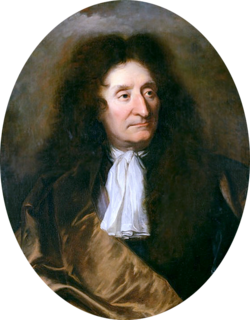A Quote by Francois de La Rochefoucauld
A fool has not material enough to be good.
[Fr., Un sot n'a pas assez d'etoffe pour etre bon.]
Related Quotes
...Je n’ai pas cessé de l’être si c’est d’être jeune que d’aimer toujours !... L’humanité n’est pas un vain mot. Notre vie est faite d’amour, et ne plus aimer c’est ne plus vivre." (I have never ceased to be young, if being young is always loving... Humanity is not a vain word. Our life is made of love, and to love no longer is to live no longer.)
The feeling ("sens", Fr.) of solidarity that is born amidst a community rest on the feeling of antagonism arouse (aroused ? arose ?... sorry, - "suscité", Fr.) by those who are opposed to it. Most of the time we only adhere to a party or a group, in order to better (or more, - "pour mieux se", Fr.) differentiate ourselves of another.

































